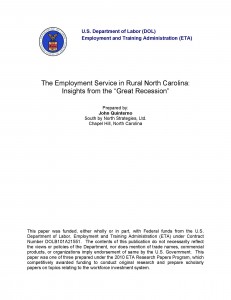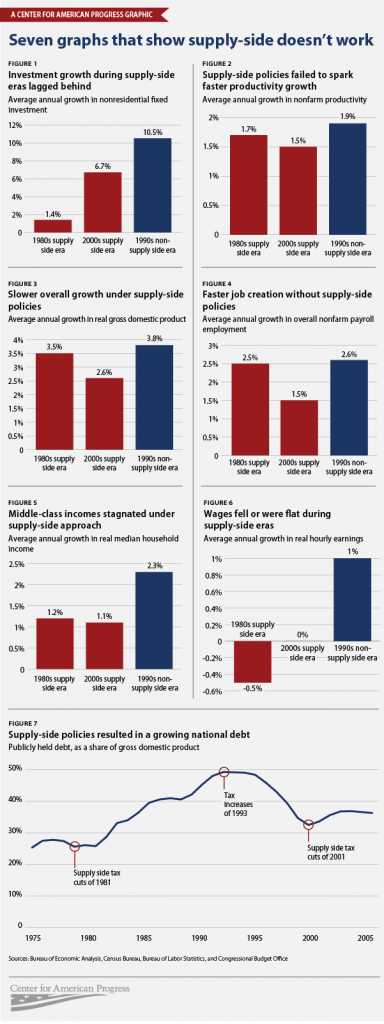The Employment Service In Rural North Carolina
Established in 1935, the North Carolina State Employment Service (ES) provides publicly-funded labor exchange services to all interested workers—both those with and without jobs—and to all interested firms in North Carolina. Services are delivered remotely and through a network of 90 local offices. Besides providing labor exchange services, the ES manages unemployment insurance claims at the local level on behalf of the Division of Employment Security, administers the “work test” required of insurance claimants,  and serves as a mandated partner in the state’s network of JobLink Career Centers, 63 percent of which are housed in ES offices.
and serves as a mandated partner in the state’s network of JobLink Career Centers, 63 percent of which are housed in ES offices.
To better understand the role that the ES played in rural communities during the height of the “Great Recession,” the Employment and Training Administration of the US Department of Labor, commissioned South by North Strategies to study the performance of the ES in rural communities between 2010 and 2011. Attention centered on the argument advanced by state policymakers that local ES offices ensure equal access to workforce investment services in rural communities. To that end, the study broke the argument into six distinct hypotheses and subjected each one to quantitative and qualitative examination. Specifically, the project documented the evolution of North Carolina’s service model, analyzed administrative data pertaining to service usage, and solicited stakeholder perspectives through semi-structured interviews. The study concluded by offering program recommendations and sketching avenues for future inquiry.
All of the findings are contained in a report entitled The Employment Service in Rural North Carolina: Insights from the “Great Recession,” which was released in August 2012.


 Email Sign-Up
Email Sign-Up RSS Feed
RSS Feed